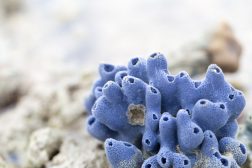Definition
noun
A taxonomic group comprised of plants, particularly land plants and green algae
Supplement
Plantae is a taxonomic group that includes land plants and green algae. In the older classification of organisms, there are basically five kingdoms according to Robert Whittaker: Animalia, Plantae, Fungi, Protista, and Monera. Kingdom Plantae includes multicellular, (mostly) autotrophic eukaryotes that (usually) conduct photosynthesis. Kingdom is formerly the highest taxonomic rank or the most general taxon used in classifying organisms. Newer classification scheme though such as that introduced by Carl Woese includes three domains. In this scheme, domain is the most general taxon and kingdom is only next to the hierarchy. Recent classification scheme also placed Plantae as a subkingdom to the more inclusive, Kingdom Archaeplastida. Other subgroups under Kingdom Archaeplastida are red algae and glaucophytes.
Members of Plantae are characterized by the following attributes:
- ability to make its own food by photosynthesis, i.e. capable of capturing energy via the green pigment (chlorophyll) inside the chloroplast, and of using carbon dioxide and water to produce sugars as food and oxygen as byproduct
- foods are stored in forms of sugars and starch.
- presence of rigid cell walls apart from the cell membrane.
- eukaryotic cells, i.e. the presence of a distinct nucleus surrounded by a membrane
- mostly are multicellular, i.e. made up of many cells organized to perform a specific function as a unit
- unlimited growth at meristems (when present).
- organs are specialized for anchorage, support, and photosynthesis (e.g. roots, stems, leaves, etc.)
- response to stimuli is rather slow due to the absence of sensory organs and nervous systems, as do animals
- limited movements due to a lack of organs for mobility, as do animals
- life cycle that involves both sporophytic and gametophytic phases (alternation of generation)
Scientific classification:


